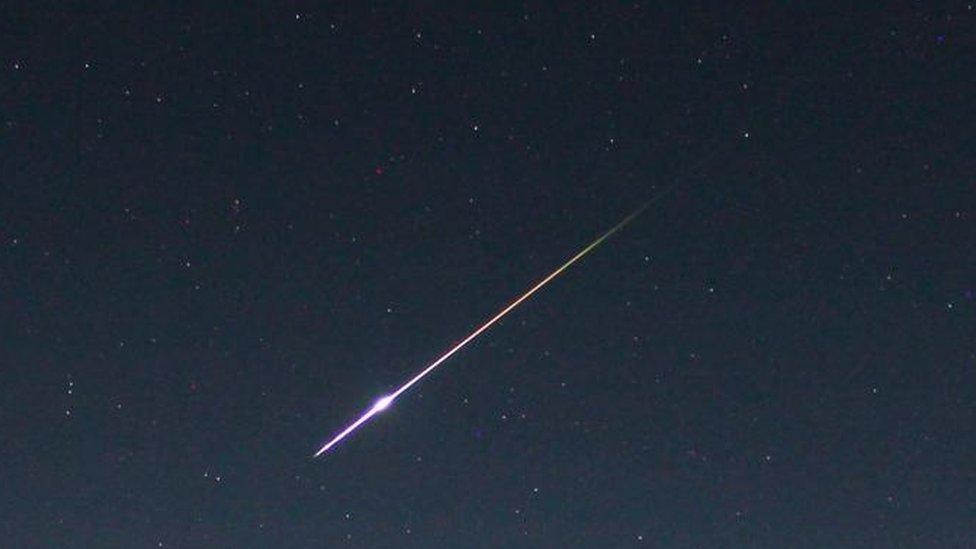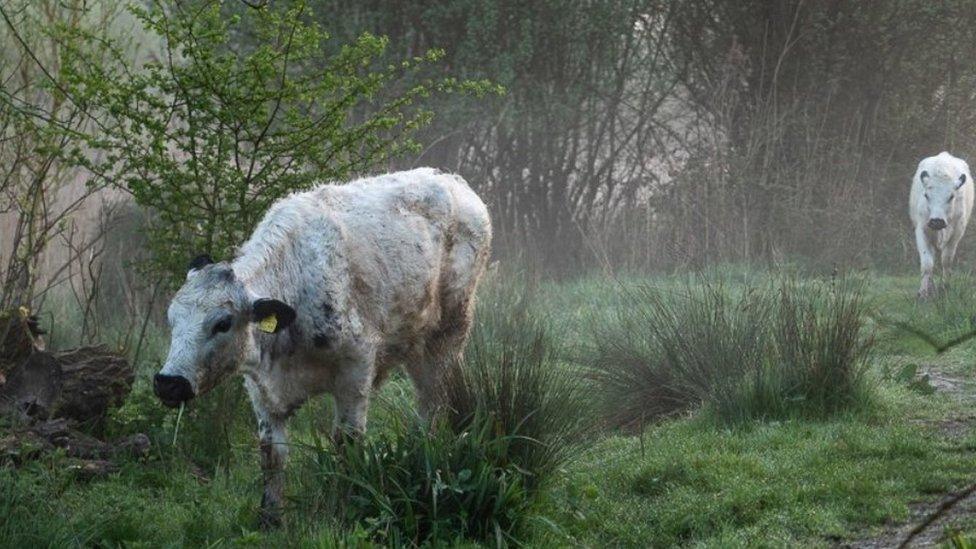Astronomer in Twitter limbo over 'intimate' meteor
- Published

A still from Mary McIntyre's meteor video which was banned by Twitter.
An astronomer from Oxfordshire was locked out of her Twitter account for three months after sharing a video of a meteor which was flagged by the site's automated moderation tools.
Mary McIntyre was told that her six-second animated clip featured "intimate content", shared without the consent of the participant.
Her only option was to delete the tweet.
However, in doing so she would have had to agree that she had broken the rules.
Her initial 12-hour ban went on for three months - and she exhausted the online appeals process.
"It's just crazy... I don't really want it on my record that I've been sharing pornographic material when I haven't," she said of her refusal to delete the tweet.
Her account was still visible, but Ms McIntyre couldn't access it.
Following the BBC publishing this article, it has now been restored.
Since Twitter was purchased by Elon Musk, thousands of staff have either been laid off or have left their jobs, but even before that Ms McIntyre found it impossible to talk to anyone about it inside the firm.
"If I wasn't getting a human response before [Musk took over], I think I've got zero probability of getting one now," she said at the time.
Yoel Roth, Twitter's then head of trust and integrity, had tweeted that the firm's layoffs did not affect "most" of the 2,000 content moderators working "on front-line review". Mr Roth has himself since left.
Cut off
The BBC tweeted Twitter's support account and contacted Mr Musk via SpaceX because Twitter currently has no communications department. There has been no response.
Ms McIntyre said other astronomers had shared the video on her behalf without consequences.
She was worried that if she agreed to Twitter's rules of re-instatement, her non-existent misdemeanour might be flagged up, as she has regular checks in order to work with school-aged children, explaining astronomy.
"I miss the interaction," she said of her locked account. "I feel a bit cut off from the astronomy world."
US meteorologist Ryan Vaughan faced a similar ban after sharing a video of combine harvesters working in a field at night. This too was flagged as an intimate moment.
Mr Vaughan eventually did choose to delete the tweet and falsely accept that he had broken Twitter's community rules, because he wanted his account back.
"It's not fair and it's wrong," he tweeted. "This needs to be fixed."
There are also reports of Twitter accounts being wrongly flagged as belonging to children aged below 13 and blocked - including one belonging to a charity for the families of people held hostage, and another of a BBC journalist.
Quick and dirty
Tech commentator Kate Bevan said it was an example of the limitations of the current artificial intelligence tools used by Twitter and other social networks to carry out moderation tasks.
"AI tools are OK for quick and dirty decisions, but it shows that content moderation at scale is really difficult - both for humans and for the AI tools that are supporting them," she said.
"It's even worse when there are no humans available to review bad AI decisions. Apart from the unfairness, it means the AI model isn't getting feedback, so it will never learn to improve."
It is not a problem that is unique to Twitter: in 2021 the owner of a small digital photo gallery had pictures of wildlife, landscapes and buildings blocked by Facebook, on the grounds that they contained "overtly sexual" content.
Related topics
- Published8 February 2021
